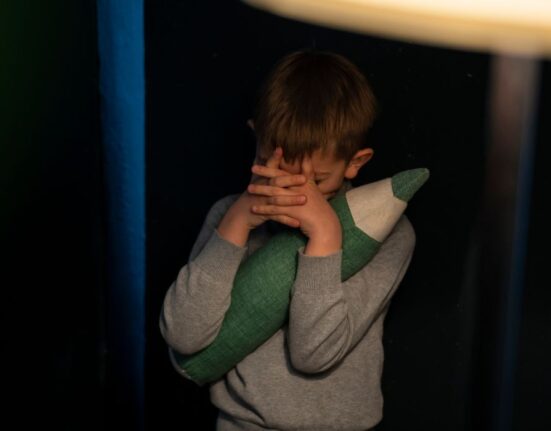In the fifth-grade class taught by Ms Rodriguez, one could see something extraordinary. The first thing a visitor would notice was the noise—a strong, slightly messy hum of debate that was a world away from the steady hush of students copying facts. Here, the lesson on the water cycle transformed into something alive. A room full of town planners, economists, and environmentalists surrounded the Children as they debated a practical question: should their community invest in rainwater collection? They wrestled with actual costs and tangible benefits. One student even sketched out a system for filtering runoff from the school’s roof to water the garden. It was a scene where the gears turning in young minds were almost visible.
That is why schools need to foster critical and innovative thinking. It alters the room’s atmosphere. It transforms learning from something that is given to you into an action. As someone who thinks about how we learn a lot, I’ve come to believe that these abilities are essential to education and not just a nice-to-have. However, I can see why it’s difficult. So let’s discuss it as a physical practice in actual classrooms, not simply as an idea.
Read More: Exploring the Many Facets of Intelligence in Children
A Little Psychology on Why It Feels So Correct
In the back of your mind, this strategy makes perfect sense. Consider the children. They wonder “why?” and push boundaries because they are inherently tiny scientists. This was charted by the renowned psychologist Jean Piaget, who demonstrated how children’s brains are designed to construct their own worldview (Piaget, 1964). Jean Piaget (1896-1980): Focused on the stages of cognitive development and how children actively build their knowledge through interaction with the environment (Simply Psychology, 2025). We are utilising their inherent desire to solve problems, whether we ask Children to create a basic gadget or analyse a character in a novel.
Read More: How School Environment Shapes Mind
1. The Power of Curiosity in Learning
Then there is Lev Vygotsky, who reminded us that learning occurs most effectively when we work together. His concept of the “Zone of Proximal Development” is simply a fancy way of expressing that with a little assistance from their peers (or a competent teacher), children can scale higher (Vygotsky, 1978). Vygotsky proposed that children develop cognitively through collaborative dialogues with more knowledgeable individuals. Key concepts include the zone of proximal development (what a child can do with assistance) and scaffolding (temporary support for learning) (Simply Psychology, 2025).
That zone is organically created by a well-argued argument or a cooperative activity. Vygotsky’s theories also feed into current interest in collaborative learning, suggesting that group members should have different levels of ability so more advanced peers can help less advanced members operate within their zone of proximal development (Simply Psychology, 2025). They push one another’s perspectives.
Furthermore, it is not about ignoring the facts. What we do with them is the key. Do you recall Bloom’s Taxonomy? Teachers are taught about that pyramid (Bloom, 1956). This hierarchy takes students through a process of synthesising information that allows them to think critically. Students start with a piece of information and are motivated to ask questions and seek out answers (Simply Psychology, 2025). To get children to the top—to analyse, evaluate, and create—is the aim. I have witnessed it. Knowledge sticks when you allow a youngster to use what they have learnt to build something new rather than just repeating it back to them. They are the ones who get it.
Read More: Let’s Talk About the Cognitive Psychology Of Learning And Education
The Benefits in Real Life: Beyond a Good Grade
Although the advantages are clear, they go deeper than you might imagine. When a student develops critical thinking skills, they will undoubtedly write superior essays. “Wait, is this true?” is the question that will also cause them to hesitate before posting a startling headline online. When faced with a complex issue, such as a debate with a friend, they learn to sit with it and consider it from all angles rather than just responding. The ability is a life skill, not simply a scholastic one.
And the piece of creativity? That pertains to adaptability. “Divergent thinking,” as J.P. Guilford put it, is the capacity to come up with several responses to a single question (Guilford, 1967). Being able to change course and adapt is crucial in a world that is changing more quickly than any curriculum can keep up. It’s the difference between identifying a new opportunity and being at a loss when the work market shifts.
However, it’s the emotional stuff that truly bothers me. A shy child has lit up for me when her own poem is honoured. I’ve seen a test-impaired student feel smarter after coming up with an original answer to a class topic. A child gains confidence from these experiences. They discover that they have a voice.
The Other Side of the Coin: It’s Not Always Easy
Let’s get real now. This wand isn’t magical. According to a friend of mine who is a teacher, “It takes time and it’s messy.” It can seem unaffordable to dedicate a week to a complex, winding project in an age of standardised testing, where funding may depend on multiple-choice scores.
Additionally, students may find it uncomfortable. The security of the “right answer” is accustomed to many. It can make people anxious to be asked to dwell in the grey area, where responses are nuanced and unstructured. Not all students come from a culture that values challenging ideas and asking questions; for some, it can be considered disrespectful. We must tread carefully when navigating this balance.
What’s the Next Step?
Getting rid of all the textbooks isn’t the solution, in my opinion. Integrating this method of thinking into our current practices is the goal. It need not be a huge undertaking. We can just change the questions we ask. For example, we can ask, “Why did the war end when it did, and what if it had dragged on?” rather than, “What year did the war end?” “How would you solve this?” is a better way to pose a real-world budget problem than simply providing a mathematical solution. The goal is to establish learning environments in which it is OK to be inquisitive, to make mistakes, and to try again. It entails appreciating the process of thought just as much as the outcome.
The last thing that comes to mind when I think of those students in Ms Rodriguez’s class is not their water cycle test results. I’m considering the type of adults they’re growing up to be. We are teaching kids more than simply how to be successful students. Our goal is to create people who can think independently, care for others, and face an uncertain future with tenacity and creativity rather than fear. And to be honest, that is the most beneficial thing that comes to mind.
References +
Bloom, B. S. (1956). Taxonomy of educational objectives: The classification of educational goals. Longman’s, Green. Guilford, J. P. (1967). The nature of human intelligence. McGraw-Hill.
Piaget, J. (1964). Part I: Cognitive development in children: Piaget’s development and learning. Journal of Research in Science Teaching, 2(3), 176-186. https://doi.org/10.1002/tea.3660020306
Simply Psychology. (2025, March 18). Vygotsky’s sociocultural theory of cognitive development. https://www.simplypsychology.org/vygotsky.html
Simply Psychology. (2025, March 25). Constructivism is a theory for teaching and learning. https://www.simplypsychology.org/constructivism.html
Simply Psychology. (2025, March 26). Zone of proximal development. https://www.simplypsychology.org/zone-of-proximal-development.html
Simply Psychology. (2025, March 11). Bloom’s taxonomy of learning | Domain levels explained. https://www.simplypsychology.org/blooms-taxonomy.html
Vygotsky, L. S. (1978). Mind in society: The development of higher psychological processes. Harvard University Press.













Leave feedback about this